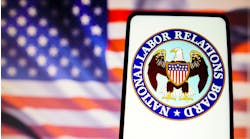If you are interested in possibly creating an intern program for your business, the U.S. Department of Labor has made it more attractive to use unpaid interns—although legal restrictions still in place may make you think twice before doing so.
Eight years ago, at the height of the Obama administration, the Labor Department adopted a strict six-part test to apply to unpaid interns before they would not be considered employees under wage laws. These internship standards so severely hobbled the use of unpaid interns in both business and non-profits and charities that most backed away from unpaid intern programs.
The most restrictive factor was that the employer could “derive no immediate advantage” from the intern’s activities. Because most internship programs involve some element in which the employer benefits from an intern’s tasks, most employers were required to pay their interns. This was true even in cases where the interns’ tasks were designed to allow them to learn or improve job skills.
The 2010 criteria came after a flurry of high-profile lawsuits involving interns working at popular media organizations hit the news. These involved interns who worked on the Academy Award-winning movie “Black Swan” to TV commentator Charlie Rose (long before his fall from grace for sexual harassment), and prominent fashion designers Donna Karan and Norma Kamali.
Magazines that also faced lawsuits filed by former interns included such well-known titles as Outside, Harper’s Bazaar, Cosmopolitan, Vogue, Vanity Fair, The New Yorker and Good Housekeeping.
Not surprisingly, labor unions disapprove of unpaid internships, and labor advocates have gone so far as to claim they can damage a young person’s career prospects if listed on a resume—an assertion that has left many business employers scratching their heads. However, tort lawyers found the possibility of collecting settlements based on federal minimum wage and overtime violations too enticing to pass up, and created enough case law to make unpaid interns an endangered species.
Dawn of a New Day
The new standards that were issued in January by the Trump Labor Department call on employers to consider and weigh a new list of seven factors. However, unlike the six-part test issued in 2010, employers are not required to meet each and every one of these criteria to remain legal. Instead it allows for a weighing and consideration of the factors, rather than requiring all of them be met.
“DOL’s new test makes it easier to create unpaid internship programs that are lawful under federal law as long as the answers to the seven questions show that—on balance—the intern or student benefits more from the relationship than the employer does,” says attorney James M. Paul of the law firm of Ogletree Deakins.
Under the new standards, employers are expected to examine the extent to which:
• The intern and the employer clearly understand that there is no expectation of compensation. Any promise of compensation, express or implied, suggests that the intern is an employee—and vice versa.
• Whether the internship provides training that would be similar to that which would be given in an educational environment, including the clinical and other hands-on training provided by educational institutions.
• If the internship is tied to the intern’s formal education program by integrated coursework or the receipt of academic credit.
• The internship accommodates the intern’s academic commitments by corresponding to the academic calendar.
• The internship’s duration is limited to the period in which the internship provides the intern with beneficial learning.
• The intern’s work complements, rather than displaces, the work of paid employees while providing significant educational benefits to the intern.
• The intern and the employer understand that the internship is conducted without entitlement to a paid job at the conclusion of the internship.
Watch Out for Traps
Although the criteria are less rigid than the Obama-era set, both lists contain some of the same factors. For example, both require that the intern does not displace regular employees and that the employer provide training similar to that provided in an educational environment.
The primary beneficiary test is more flexible, however. The focus is no longer on whether the employer benefits at all from the intern relationship, but instead on whether the employer or the intern is the “primary beneficiary” of the relationship.
Nonetheless, employers need to create documentation that, among other things, expressly states the internship is unpaid and that the intern is not entitled to a paid job at its conclusion.
If you are involved in nonprofit groups, you should know that DOL reiterated its previous position that people who volunteer to perform services for a state or local government agency, or who volunteer for humanitarian purposes, are exempt from the federal minimum-wage and overtime requirements.
“Unpaid internships for public sector and non-profit charitable organizations, where the intern volunteers without expectation of compensation, are generally permissible,” the Labor Department explained.
Keep in mind that states as well as some cities and local jurisdictions have imposed stricter requirements on businesses—just like many do in regard to minimum wages, overtime compensation, and paid sick time and leave requirements. Employers need to confirm that their internship programs comply with these requirements as well as meet federal standards.
“Although the DOL’s new guidance is certainly welcome news for employers with internship programs, risk still remains anytime an employer engages unpaid interns, and employers should consult with knowledgeable counsel when developing or implementing an unpaid internship program,” warn attorneys of the law firm of Morgan, Lewis & Bockius.
In the end, you may want to simply pay your interns minimum wage in order to avoid the complications and liability unpaid interns bring with them.




